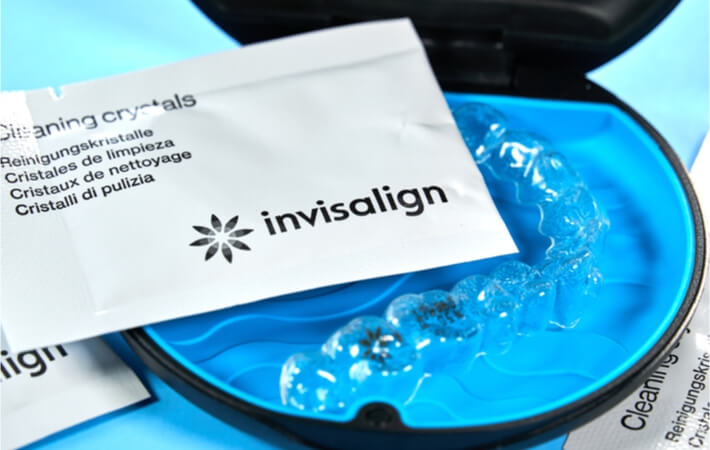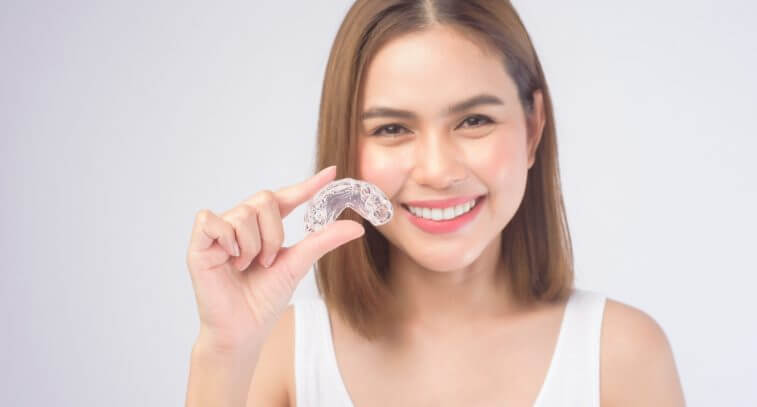Are Clear Aligners a Match for Missing Teeth?
Invisalign is an orthodontic treatment for alignment issues that your dentist can perform. The nearly invisible aligners appeal to many patients wanting to improve their smiles. However, like any dentistry service, Invisalign may not be the perfect fit for all patients.
Some oral problems or lifestyles can make some patients a poor fit. That’s why it’s crucial to schedule regular dental appointments to prevent and treat issues impacting cosmetic dentistry services.
Patients may wonder if they’re still candidates for clear aligners if they have missing teeth. The short answer: yes! But it’s also more complicated.
What Is Invisalign?
Although not the only clear aligner, Invisalign was one of the first, the best-known. It’s an alternative to braces, both in the less conspicuous appearance and the rate of treatment. Invisalign can be more comfortable and work faster than braces, with some patients experiencing final results within 6 months. However, the average completion rate is less than 2 years.
Patients receive new aligners every 1–2 weeks, depending on their treatment plan and compliance. The aligners are based on 3D scans of a patient’s teeth and Invisalign software that maps changes. Many patients begin seeing positive results within weeks.
Invisalign can help with many issues, even some problems that are considered tough cases. Invisalign can be an effective treatment for:
Invisalign can help with many misalignment issues, including bite and tooth position. However, some dental problems can be too complex or interfere with the effectiveness of the aligners. One problem that may pause a patient’s Invisalign journey is tooth loss.
What Causes Tooth Loss?
Missing teeth or tooth loss can happen for several reasons. Losing baby teeth (primary teeth) is normal and doesn’t affect dental health. However, losing permanent teeth can lead to dental issues and overall health problems. It can also cause face and jaw muscles changes, including altering face shape.
Some causes of tooth loss include:
- Injury or trauma
- Malnutrition
- Tooth decay
- Gum disease
- Autoimmune diseases
Teeth can be replaced through restorative dentistry. The most common replacement options include:
- Dental implants
- Dental bridges
- Dentures

Can You Get Invisalign with Missing Teeth?
The short answer: yes. Missing teeth is not a deal-breaker, and many patients can still benefit from Invisalign. The longer answer is: it depends. Our dental team will need to assess why you lost the tooth and your dental health before we can recommend Invisalign.
Tooth loss can be associated with the health of your gums and jaw, which can interfere with Invisalign treatment. For example, if a patient has gum disease, the condition can continue to cause symptoms and spread if untreated.
Invisalign can work with replaced teeth. However, your dentist must first assess if the condition of previous dental work is compatible with orthodontic treatment. Dental implants, bridges, and crowns can last a long time, but they can experience wear and tear from daily use.
Our dental team already examines previous dental work, including fillings, to help you maintain healthy teeth. But checking before orthodontic treatments can ensure it’s the best option for your smile.
Can You Get Invisalign with Missing Molars?
A common type of tooth loss is wisdom teeth removal. Wisdom teeth, like all molars, are located in the back of the mouth. Molars are the largest and strongest teeth. They’re used for grinding food, making pieces more manageable for swallowing. When wisdom teeth are missing, it’s unnecessary to replace them before Invisalign treatment.
If a patient is missing other molars, it can be beneficial to replace them before Invisalign. Your first and second molars sets are anchored into the jaw with 2–4 roots each, whereas many front teeth are anchored with 1–2. Because of their significant size, molar loss leaves plenty of room for other teeth to shift, changing your bite.
Teeth shifting occurs to compensate for the empty space. It can become a problem more quickly for front teeth, as the shift can affect your smile. However, it can still be a problem for back teeth. To prevent your teeth from shifting out of alignment after Invisalign, it’s best to replace your missing molar first.
Ask Us About Invisalign
Healthy teeth support a healthy smile. If you’re worried dental issues are keeping you from a happier smile, contact our team at Marks Dentistry. An Etobicoke dentist can recommend options for improving your smile and maintaining your dental health. If Invisalign is the right choice for you, we can support you through assessment and treatment.




